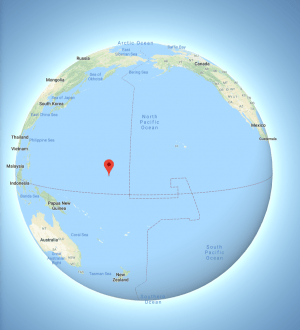Marshall Islands Dismiss Warning by IMF Over its Crypto
The Marshall Islands, the small and remote Pacific island country that earlier this year announced their intention to launch a national cryptocurrency (“SOVEREIGN” or “SOV”), has received a warning from the International Monetary Fund (IMF) on its decision. However, the local authorities say risks are under control.


A tiny country without any national currency of its own, the Republic of the Marshall Islands (RMI) uses the US dollar as its currency, while also being dependent on significant foreign aid from the United States paid in US dollars.
The IMF said in a report that, the country is taking advantage of the “growing enthusiasm for cryptocurrencies, together with the innovation of it being a national currency, to generate much-needed income for the government.”
Further, the IMF noted that “the issuance of a decentralized digital currency as a second legal tender would increase macroeconomic and financial integrity risks, and elevate the risk of losing the last U.S. dollar correspondent banking relationship.”
“The potential benefits from revenue gains appear considerably smaller than the potential costs arising from economic, reputational, AML/CFT [Anti-Money Laundering and Countering Financing of Terrorism], and governance risks. While technology may help to address some of these risks, others would need to be mitigated through institutional changes. Furthermore, the use of the SOV as a means of exchange in transactions would require significant additional costs to upgrade the RMI’s telecommunication infrastructure,” the IMF warned.
However, the same report added that while acknowledging the risk from issuing the SOV, the authorities were confident that advanced technology would provide for sufficient risk mitigation.
This is what the authorities have answered to the IMF:
- They anticipated that the risks of the SOV being misused for ML/TF purposes will be sufficiently mitigated by the fact that the identity of the SOV users will be recorded on the blockchain and that the SOV could only be traded through global cryptocurrency exchanges approved by the RMI government.
- They also added that the risks of monetary instability would be limited by a mechanism which will automatically adjust the SOV supply to prevent excessive price volatilities.
- The authorities noted that the SOV would only be issued once the planned issuance and use of the SOV are deemed to comply with Financial Action Task Force (FATF) standard and U.S. regulations and its use in transactions in the U.S. financial system has been approved by the U.S. government (as in the case of other countries’ fiat currencies).
- The authorities also added that they would shift their focus to addressing challenges to macroeconomic management at later stage.
- Considering all of these preparations, they expected it would take few years to issue the SOV.
- They noted that there would be no financial costs for the RMI because the Act explicitly provides that the costs related to the issuance of the SOV are to be borne by the foreign private company.
_____
Who is right here, remains to be seen, but with a major portion of its economy being held up by US dollar-denominated foreign aid, moving against US regulators or the IMF may turn out to be a very costly experiment for the Marshall Islands. Moreover, RMI is vulnerable to climate change because of its low elevation, and it has experienced natural disasters such as droughts and floods repeatedly.
According to the IMF, growth in the Marshallese economy is estimated to have accelerated to about 3.5% in FY2017 (ending September 30) with a strong pick-up in fisheries and construction, with the latter due to the resumption of infrastructure projects
Growth is expected to remain robust at about 2.5% in FY2018 and about 1.5% over the medium term, underpinned by further increases in infrastructure spending. Inflation is expected to rise gradually to around 2% over the medium term
In either case, some countries are already trying to experiment with their own cryptocurrency. It includes the controversial case of Petro in Venezuela, while Iran is also eyeing cryptocurrency-related financial activities, including a possible digital fiat, as a way to get around American sanctions.




